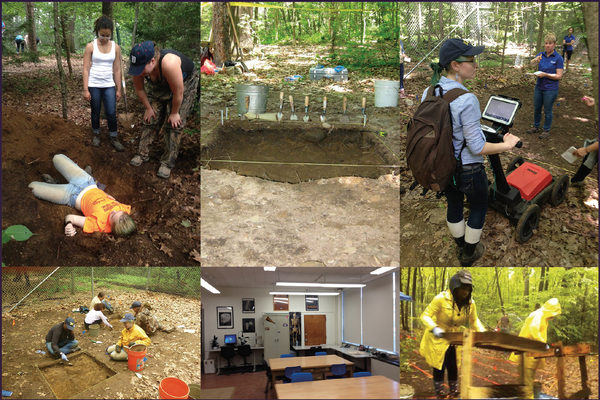
Submitted 9 March 2016 by Sarah Mathena
Field school sexual harassment policy: http://www.umass.edu/eod/SexualHarassmentPolicy.pdf

This UMass Amherst field course introduces students to the role of the biological anthropologist, archaeologist and forensic scientist in the excavation of human remains.
The course is divided into three sections:
The first introduces students to field and laboratory techniques. Topics include:
understanding the human skeletal system pathology and taphonomic analysis discussion of what constitutes bioarchaeological or forensic data the role of violence theory in these fields.
The second section consists of the students entering the field to gain hands-on experience. Excavations are of a pseudo-crime scene and pseudo-archaeological burial, and helps the students develop knowledge through the “Low Stakes, High Impact” learning model.
The final section focuses on the laboratory techniques used to analyze the data generated from two pseudo-excavation sites. Throughout the course we explore key concepts in ethics, repatriation, public outreach, medico-legal death investigation, and regulations regarding unmarked burials.
Through excavation and lab analysis this field school addresses three major questions in the fields of bioarchaeology and forensic anthropology:
What constitutes data in these fields? How are excavations and fieldwork done? How do you analyze field data in the laboratory? In addition, students will learn how professionals work in the field, examine ethical issues and guidelines, and explore questions of what constitutes violence and how we recognize evidence of violence on human remains and material objects.
Application Materials can be found at our website. Applications due April 1. Please contact us at our email address with any questions regarding the field school.
Copyright © 2024 American Association of Biological Anthropologists.
Site programming and administration: Ed Hagen, Department of Anthropology, Washington State University